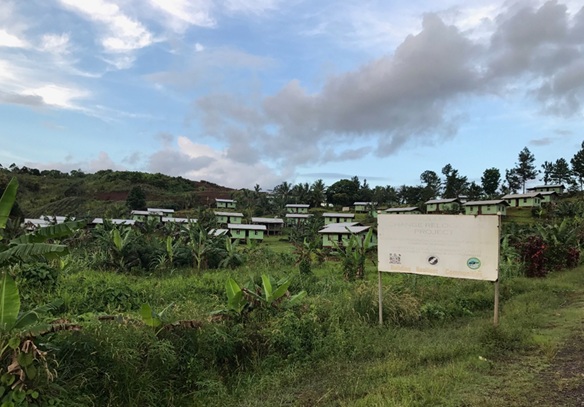Planned relocation of communities and households has emerged as a critical climate adaptation and disaster risk reduction strategy. Planned relocation, also referred to as community-based relocation, managed or planned retreat, is the permanent and purposeful relocation of people, homes, infrastructure away from hazard prone areas, including those intensified by climate change, to safer locations. Relocation programs and policies are prevalent globally, existing across all inhabited continents and countries. They can occur at multiple scales from relocation of entire communities to retreat of exposed or at -risk households.
This project takes a justice -based approach to examine the governance, household decision-making, and livelihood outcomes of planned relocation in Australia and Fiji and develops recommendations and a framework for Just Relocation. With projections that 340 million people globally will live below annual flood levels by 2050, many regions will become uninhabitable, causing planned relocations to become more commonplace.
Yet, relocation is not a panacea for climate and disaster affected people. First, exposure to climate impacts does not necessarily lead to a desire or ability to move. There are examples of communities and households opting to remain in locations of high risk despite relocation plans (voluntary immobility) and some households are unable to relocate owing to social, cultural, economic, psychological, and institutional barriers (trapped populations). Second, relocation can have disastrous outcomes for households and communities. Negative outcomes on livelihoods can occur when processes are inequitable, and relocation can amplify existing inequalities across race, gender, class, (dis)ability, and socio-economic status. Further, populations can experience new vulnerabilities in destination sites, such as loss of culture, disrupted place-attachment, and altered social and familial connections.
Employing innovative cross-cultural mixed methods including qualitative, quantitative, and visual storytelling methods, in six case study sites across Australia and Fiji, this project asks: how can a justice-based approach be centred in climate relocation? This project analyses dimensions of relocation – relocation governance, household decision-making, and outcomes for communities – to establish justice-based recommendations for planned relocation.
Related material
For more information, visit the Just Adaptation Research Group website.
Chief Investigator
Project funding
- Australian Research Council 2024-2027
